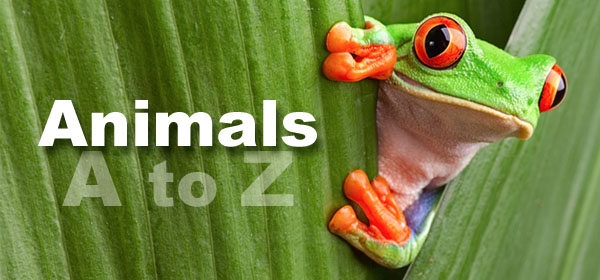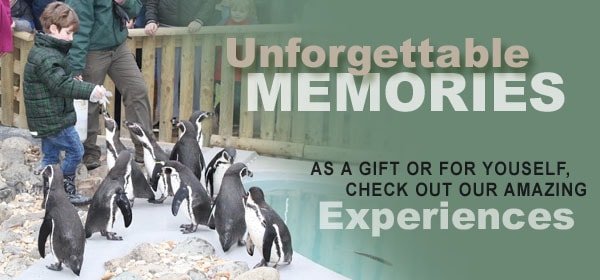I wrote a blog over four years ago about becoming a zoo keeper so I think it’s time for an update.
Working with animals is something that a lot of people strive to achieve and being a zoo keeper is something that a lot of people dream of being.
With this blog I’m going to give you some updated tips on how to achieve this and also interview some of our keepers as to how they got their positions.
The first question that I usually get asked is what qualifications do I need. Well you don’t necessarily need any qualifications. However, they will definitely help you to stand out and hit the criteria needed for a lot of animal keeper jobs that are advertised.
Qualifications
There are a lot of different qualifications that cover aspects of zoology, animal care, veterinary care, behaviour, welfare, zoo keeping and conservation. You can find varying levels of qualifications that all specialize in animal related subjects, Diplomas, Foundation Degrees, Degrees, Masters and PhD’s. If you were looking at doing a degree you could take the route of doing A Levels then going to university to study an animal related subject. However there are no animal specific A Levels courses that I know of.
Studying can either be full time or part time. There are also some long distance learning courses and online courses available. What you choose to do is up to you and what suits your circumstances.
The qualifications for a zoo keeper position depend on the particular zoo. Some zoos will require a degree level qualification even for an entry level zoo keeper whereas others will be happy with relevant experience and no qualifications. It really does depend on the position and what experience you may already have.
Apprenticeships can be found within a few zoos, but they are extremely competitive and often there is a lot of criteria needed to qualify. They are a fantastic way of gaining qualifications whilst working and gaining experience plus you get paid whilst you learn.
Experience
What experience do I need? Is usually the next question after what qualifications are needed?
Experience with animals is essential. However it doesn’t have to be in a zoo, although this is preferred for getting a zoo keeper job. It can be from helping in a rescue centre, farms, stables, vets and pets that you look after. All hands on experience counts.
You can have all the qualifications in the world, but if you don’t know how to use basic cleaning equipment to clean out an animals housing to a high standard, then you won’t last long in any animal care positions.
There are many different ways of gaining experience in a zoo. Work experience, volunteering and internships.
Work Experience
A lot of schools and colleges offer students the chance to look for their own work experience placements. These are a fantastic way to gain experience and see what working with animals is really like. However, a lot of zoos will only allow students over the age of 18 to do work experience placements. Remember you can gain animal experience from other types of animal work, not just zoo keeping. At both Sandwich Wildlife Park and Wingham Wildlife Park we have keepers who have completed work experience placements with us.
Volunteering
Volunteering is a great way to gain experience in the zoo industry. It allows you to see what the job entails as well as getting to spend time with amazing animals. A lot of zoos also look at their pool of volunteers first if they have any zoo keeper positions available. Zoo’s often have a few different types of volunteer roles.
Education volunteers, will help out with touch tables and maybe doing talks about different animals to the public. These types of roles need you to be friendly, approachable and confident with speaking to the public. There may be opportunities for gardening volunteers as well. Helping to keep the zoos plants looking at their best.
Animal keeper volunteers help with the care of the animals and often do other tasks that the keepers do as well. This type of volunteering may involve preparing animal foods, cleaning enclosures, making enrichment, small general maintenance tasks like weeding and cleaning windows. Also helping to keep the animal kitchens and the zoo clean. All of our keepers at Wingham Wildlife Park and Sandwich Wildlife Park have done some sort of voluntary work with animals here in the UK or abroad.
Internships
These are a great way of gaining full time experience. A lot of internships are voluntary but many degree courses will offer a year in an industry placement with their courses. This is a perfect opportunity to gain experience. You would be trained as a trainee keeper, learning all the basics of a zoo keeper’s role. Sometimes this may involve shadowing a keeper whilst they do their jobs. Other times you may be asked to do certain jobs on your own once trained. Internships often require you to work full time for a minimum of 3 months up to a full year. These offer great opportunities to build the experience and skills needed to become zoo keepers. Quite a few of our keepers at Wingham Wildlife Park have done internships within zoos or abroad at sanctuaries.
Best tips for succeeding as a volunteer wanting to become a zoo keeper
- Being friendly and approachable – remember that it’s not just animals that you have to work with as a zoo keeper. You have visitors and other staff that you will need to be able to communicate well with. You may need to give talks to the public and also report to senior staff about any issues or problems. Visitors may ask you questions so conveying the correct information is essential and if you don’t know the answer, just be honest.
- Asking keepers questions and researching for yourself – continuous learning is all part of being a zoo keeper. Our roles can change over time with regards to how animals are cared for, what is best for the animals with their husbandry and diets, new training techniques and enrichment ideas are always being developed so having some background knowledge always helps. Asking keepers about the animals and showing an interest in them will definitely score some brownie points.
- Being punctual and considerate – Any time that you volunteer is always greatly appreciated. Showing up on time and letting someone know if you can’t attend lets people know you can be relied upon and that you have good time keeping skills. Zoo keepers all know that you are giving up your free time to help out as many of them will have also volunteered. In fact I hardly know of any zoo keepers that haven’t done some sort of volunteer work before they got their first paid position.
- Lastly hard work and initiative – These are biggies. Zoo keepers often work before and past their start and finish times. There needs to be keepers who are able to work every day of the year, outside in all weathers. They often miss out on family time due to having to work holidays and weekends. Zoo keeping is definitely physically hard work. You are on your feet most of the day, lifting heavy items and cleaning enclosures. Volunteers need to be able to assist with some of the physical tasks. Perhaps helping to put food deliveries away and filling enclosures with wood chippings as well as helping to clean enclosures. Showing initiative is also always noted. Seeing a dirty window and cleaning it without being asked to. Washing up a dirty bowl. Picking up litter whilst walking around the zoo. Asking if there’s anything else you can help with and offering help when you can see someone with a heavy rubbish sack. All of these will show you are able to use your initiative to help the keepers get their jobs done.
If zoo keeping is what you wish to do as a full time job, remember that whilst volunteering at a zoo you will be continually assessed by keepers and senior staff as to whether you would be suitable for a position. Just because you are working for free doesn’t mean you should work to a lower standard. You should want to prove to staff that you would be a valuable member of the team should a position arise.
Good luck!


